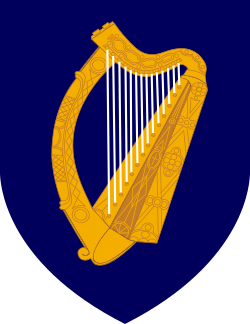Background
The case began in 2011, but had been moved to the desk of McGovern J after Kelly J was accused of objective bias. [1]
Brian and Mary Patricia O'Donnell, the appellants, were a married couple who brought a motion to the Court in order to remove any ownership they had in a variety of companies and properties. They sought to transfer them to their two sons, Blake O'Donnell and Bruce O'Donnell, the other two appellants. [1] They had applied to the Supreme Court for a stay on an order made by McGovern J, which adjudicated their relationship with the plaintiffs in that case and Bank of Ireland, the respondent in this case.
Holding of the Supreme Court
The Supreme Court, made up of Denham C.J , MacMenamin J and Laffoy J in a unanimous decision dismissed the motion. The ruling was split into two parts, dealing with Mr and Mrs O'Donnell and their sons separately.
Brian and Mary Patricia O' Donnell were declared bankrupt in 2013 and thus, their property rights were conferred to the Official Assignee as per section 44 of the Bankruptcy Act 1988. They sought an order of a stay on the order of McGovern J. Under section 3 of the same Act, the term 'property' includes the right to litigate, which now rested with the Official Assignee as Mr and Mrs O'Donnell were declared bankrupt. Therefore, the Court found that this meant the first two appellants, Brian O'Donnell and Mary Patricia O'Donnell did not have locus standi. [2] Although, some personal actions may rest with the appellants as opposed to the Official Assignee, litigation is not one of them. Subsequently, Mr and Mrs O'Donnell did not have the capacity to bring a motion before the court. The order for a stay could only be accepted if it is initiated by the Official Assignee in this case. Thus, the Court decided that Mr and Mrs O'Donnell could not raise a motion before the court as they did not have the capacity to do so and so dismissed their application for a stay. [3]
The remaining appellants, Bruce and Blake O'Donnell faced the same result. The Court found no reasons as to why they should be given a stay. They questioned McGovern J's previous connection with the Bank of Ireland and alleged it could be the sole reason for his partiality towards the respondents (Bank of Ireland). However, the Court rejected their arguments of objective bias by referring to McGovern J's statement on that matter. [3] He stated that he at the time had no outstanding debt with Bank of Ireland, although he had had in the past. [1] Ultimately, the fact that McGovern J had a mortgage loan with Bank of Ireland in the past is not a valid reason for his recusal, as to do so is unreasonable. [1] [3] The only account he has with them is a current or savings account. Merely having a bank account with the said bank for his own private matters is irrelevant to this case as neither was he a shareholder nor did Bank of Ireland owe him any money. [1] [3] Furthermore, McGovern J went on to make the point that in a banking sector as small as Ireland's it would be impractical for every judge to step down each time they came upon a case in which the respondents were the ones they had personal banking arrangements with. [3] In the matter of adjudicating the judgement for a stay the Court relied on Danske Bank v. McFadden. [4] The Court also held that "[t]he law as to objective bias has been clearly stated by this Court: see Bula Ltd v. Tara Mines Ltd [2000] 4 I.R. 412; Kenny v. Trinity College Dublin [2008] 2 IR 40; O’Callaghan v. Mahon [2008] 2 IR 514; O’Ceallaigh v. An Bord Altranais [2011] IESC 50." [3] Blake O'Donnell and Bruce O'Donnell, were not, therefore, granted an order for a stay either. However, the court did agree to prioritise this appeal case and hold a directions hearing with the parties concerned. [3]
The Court therefore denied the application for a stay, and the motion was dismissed. [3]
This page is based on this
Wikipedia article Text is available under the
CC BY-SA 4.0 license; additional terms may apply.
Images, videos and audio are available under their respective licenses.
